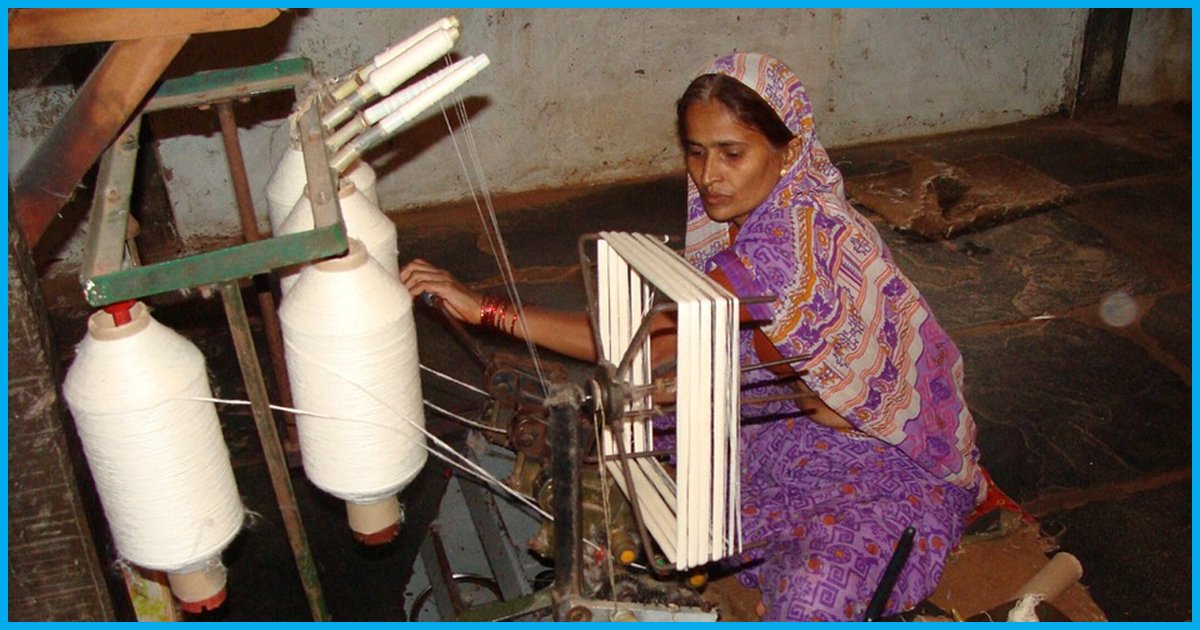
Handmade Products Which Were Earlier Tax Exempted, Now Attract GST Between 5% To 28%, Activists Demand Rollback
19 Sep 2017 7:06 AM GMT
Editor : Pooja Chaudhuri
The only fiction I enjoy is in books and movies.
The Government of India had announced the rollout of the Good and Services Tax (GST) on July 1. Under the new tax regime, handloom products, which earlier were exempt from both VAT and Central Excise, now attract 5% GST.
Handmade products – Khadi handloom, handicrafts, mats, pots, ploughs – are now tasked between 5% to 28% GST. Such products are ‘naturally’ expensive, as said by Graama Seva Sangha, and with GST imposed on them, they have become much more expensive.
The business holders will be forced to exaggerate rates of goods and the customers will also be asked to pay more which will in turn badly affect the handmade craft businesses which is the livelihood of thousands across India, especially in northeastern states and the Kashmir Valley.
Silk fibres have been exempted in the new tax regime, however, natural fibres are taxed under 5%, besides yarn in all other categories.
Before GST, apart from no central tax on handicrafts, some states also exempted it for levy.
The government levied 5% GST on cotton fibre, yarn and fabric against nil taxation and placed silk and jute in the nil tax category, but 18% GST was levied on synthetic fibre yarn and it would adversely impact the industry.
The carpet industry, which was earlier under 0% VAT regime, has also come under 12-18% tax under GST.
A blow to the Handloom industry
The handloom sector is a decentralised one and is spread across India. It employs more than 40 lakh people, mainly based in rural India and a majority of them are women.
The handloom weavers are mostly from the most vulnerable sections of the society – SC, STs and OBCs. Most of them do have basic education and the handloom industry is their livelihood. They belong to the informal sector and are independent workers.
The handloom industry is also a good source of export income for the Indian government – 14% of the total textile production.
It is not only a contributor to the Indian GDP, but works as an economic developer and an employment generator.
Assam and other states in the northeast account for over 60% of the total handloom produce in India.
“I don’t think this it will affect because the threshold turnover for GST is 10 lakhs and then there is composition policy available and even the state government can give refunds,” said Assam Finance Minister Himanta Biswa Sarma, reported NDTV.
“The rural artisans do not have the wherewithal to comprehend, register, file returns online, leave alone paying or availing exemptions. This will keep them out of the market and eventually wipe out the crafts,” explained Chockalingam Muthiah, a mentor of Graama Seva Sangha to The Logical Indian.
Tax Denial Satyagraha
On September 7, Graama Seva Sangha released the Tax Denial Satyagraha – Charter in press meet at Press Club Bangalore, demanding to withdraw tax on handmade products.
“This we believe is the second Tax Denial Satyagraha. The first one happened in 1930 when we had fought the British against an inhuman tax on salt. Nearly a century later, we are compelled to launch a second Tax Denial Satyagraha against our own government for levying an inhuman tax on rural products,” says Graama Seva Sangh.
“Even for your own survival, you need to protect the rural enterprise. Handmade is environment-friendly. Handmade is almost entirely carbon neutral. If you want Global warming to be reversed, if you want environmental degradation to be halted, and more importantly, if you do not want hordes of displaced villagers to descend on your city, you must support handmade products,” they added.
Graama Seva Sangh believes that their Satyagraha is a consumer atonement movement – one where they will sell handmade products publically, without either paying or collecting tax. They consider taxing handmade products a civil disobedience.
“We are willing to face the law but shall not give up the Satyagraha until the tax is rescinded.”
To know more about Tax Denial Satyagraha click here or contact Graama Seva Sangh at 080 26422118.
 All section
All section













